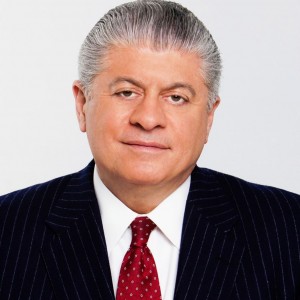Does the government work for us or do we work for the government? Can the government morally steal data about allies and enemies and then make it a crime to reveal that data, even when the revelation shows that the government has been lying about killing? What to do about high-ranking government officials who lie about war? When the First Amendment states that “Congress shall make no law abridging … the freedom of speech,” does it really mean NO LAW?
All these questions came to mind as I attempted to digest the significance of the recent leak of top-secret documents from what appears to be a Pentagon briefing on the current status of military operations in Ukraine.
In all, about 50 documents appear to have been printed off a computer and taken out of a secure federal facility and then photographed. The photos were then uploaded to various internet sites. The essence of the revelations is that Russia is killing seven Ukrainian troops for every one of its own that Ukrainians are killing, Ukrainian air defenses are projected to collapse totally by the end of next month, and the U.S. has excellent sources of Russian military plans, so good that the Pentagon is able to inform its Ukrainian counterparts of Russian troop movements and air assaults before they occur.
Do the math. A 7-to-1 kill ratio is a slaughter that cannot endure much longer. So, when Defense Secretary Lloyd Austin tells the Senate Armed Services Committee he expects Ukraine to do well militarily this spring and next winter, how can he reconcile his statements to that kill ratio?
The American government is deeply committed to aiding Ukraine in its resistance to Russian forces in ways not even known to members of Congress, the media or the American public. Stated differently, the U.S. is at war with Russia.
The U.S. steals Russian military plans and gives them to Ukraine officials. The U.S. has provided more than $60 billion in cash and military equipment to Ukraine. The U.S. spies on Ukraine political, military and intelligence leadership with such effectiveness that the U.S. knows Ukraine plans before they are executed.
Add to all this, the U.S. has troops on the ground in Ukraine, out of uniform, operating sophisticated American military hardware. Americans in Ukraine choose Russian targets and Americans in Poland pull the triggers.
Are American boys using American military hardware to shoot American ammunition at Russian boys? In a word: YES.
Is any of this legal? In a word: NO.
Here is the backstory.
Daniel Ellsberg was a civilian employee of the Pentagon in the 1970s who secretly copied about 7,000 pages of classified documents concerning the war in Vietnam and handed the documents to reporters for The New York Times and The Washington Post.
When the Nixon administration got wind of this, its Department of Justice sought and obtained injunctions against the publication of the documents. The newspapers appealed and the Supreme Court — in a very rare step — directly took both appeals, bypassing the intermediate appellate courts.
In the famous Pentagon Papers case, the court ruled in favor of the media. It held that matters material to the public interest — especially matters pertaining to the government, particularly matters about war — can be published with impunity, no matter how the materials came into the possession of the media.
It is on this basis that Edward Snowden published secret documents showing government mass warrantless spying on Americans, and Julian Assange published classified materials showing U.S. war crimes.
The documents that Ellsberg revealed showed that American generals and President Lyndon B. Johnson had been lying to the public about the war. The Supreme Court’s decision was a complete exoneration for the media, but what about Ellsberg and Snowden? And what about Bradley Manning, who stole the materials that Assange revealed?
Snowden is indicted yet living in Russia. Ellsberg and Manning were prosecuted for espionage — failure to retain secrets reposed to them for safekeeping. The case against Ellsberg was dismissed when the judge learned during his trial that the FBI broke into Ellsberg’s psychiatrist’s office looking for his medical records. Manning pleaded guilty and was sentenced to 45 years in prison. His sentence was commuted by President Barack Obama.
Should Ellsberg and Manning have been prosecuted for revealing truths? Should Snowden be prosecuted? Should the leaker of the Ukraine documents be prosecuted? Should the media’s immunity from criminal and civil liability be limited to the media in this age of internet self-publishing?
If I were free to do so, I’d terminate all prosecutions for the revelation of truthful matters about the government and pardon all persons who revealed government truths that are of material interest to the public.
I’d do this because truth is a higher good than government comfort in wars that do not threaten American national security. The public has the right to know when the government is materially misleading it by spying or killing and lying about it. In Ukraine, American troops are killing Russian troops in a war that the government itself believes is a losing effort.
Moreover, Congress has not declared war against Russia, but President Joe Biden is surreptitiously fighting one. Congress can only declare war on a country whose military is an imminent threat to America. Today, the U.S. is more of a threat to Russia than Russia is to the U.S.
The more all this is exposed, the better Americans can decide who should lead them. What about the freedom of speech? The whole purpose of the First Amendment is to encourage open, wide, robust speech about the policies of the government. This underlying value is assaulted when speech is silenced because the government hates or fears it.
Government punishment of speech is the work of tyrants, as are secret and illegal wars. The revelation of all this is courageous and heroic.
–Judge Andrew Napolitano




